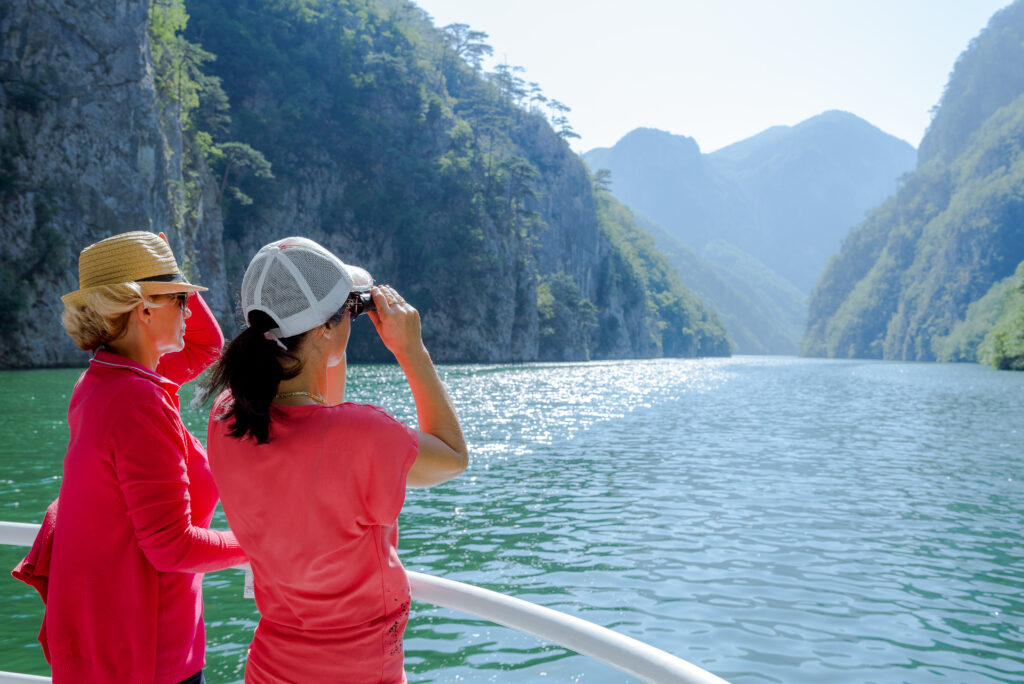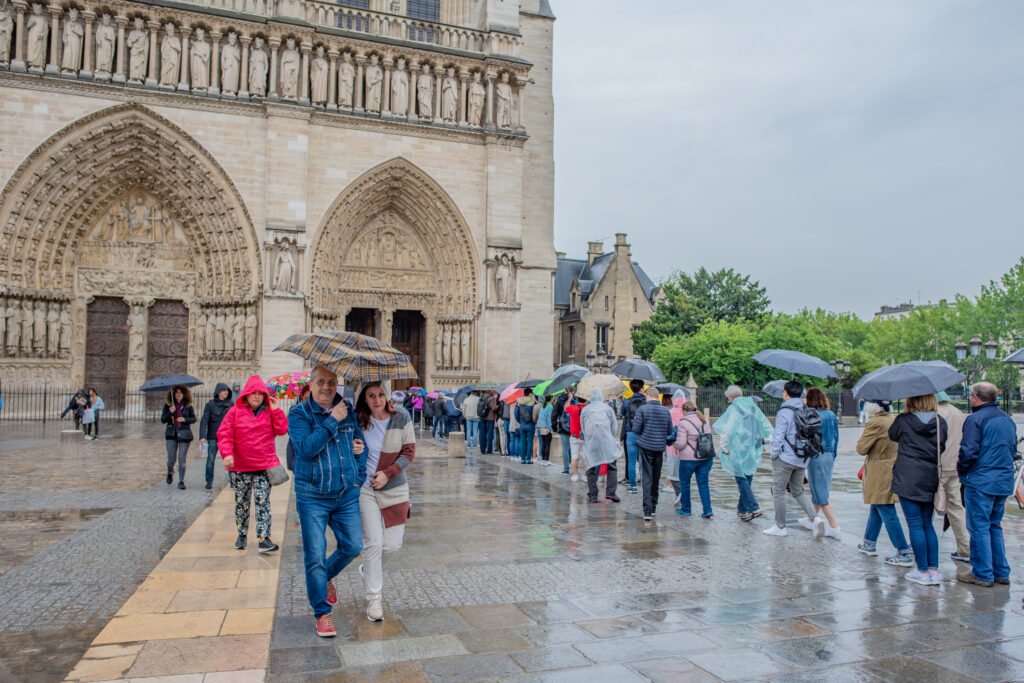Older adults who ignore these common mistakes are in for a stressful and unforgettable travel nightmare.

Not all travel companions are created equal, especially when you’re over 60. Choosing the wrong person could turn your getaway into a frustrating ordeal instead of the relaxing escape you envisioned. Seasoned travelers over 60 know that a successful journey isn’t just about picking a great destination—it’s about planning wisely to avoid predictable pitfalls. Understanding these common missteps ensures that your trip is memorable for all the right reasons.
Traveling in later life should be an enriching experience, full of moments to savor, not a series of stress-filled mishaps. Yet, many older travelers still make rookie errors that lead to exhaustion, discomfort, or unnecessary tension. By being proactive, you can sidestep these mistakes and enjoy smoother adventures, ensuring you return home refreshed and fulfilled. Here are 12 crucial things to avoid.
1. Don’t Plan Every Minute—Over-Scheduling Will Exhaust You Both

When you’re over 60, your energy levels aren’t quite what they used to be, making it vital to pace yourself. Packing every minute with sightseeing, activities, and excursions may seem tempting, especially if you fear missing out. However, doing too much will quickly lead to exhaustion and irritability. Building downtime into your itinerary allows you both to relax, recharge, and truly appreciate the experiences without feeling rushed, as reported by Travel + Leisure.
Moreover, a leisurely pace provides room for spontaneity, letting you explore unexpected opportunities that often create the most cherished memories. Slowing down not only prevents burnout but also deepens your connection with your surroundings and each other. Give yourselves permission to enjoy restful afternoons, relaxed dinners, and gentle strolls—your future self will thank you, as mentioned in a recent Forbes travel guide.
2. Avoid Skimping on Accommodations—Cheap Hotels Can Ruin Your Stay

Selecting accommodations solely based on price can significantly affect your travel enjoyment. Older adults particularly need comfort, cleanliness, and security, which bargain lodging frequently lacks. Cheap hotels often bring noisy neighbors, uncomfortable beds, and less-than-ideal hygiene standards. Investing a bit more ensures you wake refreshed and ready to fully experience your destination rather than exhausted from a restless night, as stated at Condé Nast Traveler.
Additionally, quality accommodations offer valuable amenities like accessible rooms, quiet environments, and reliable customer service, all of which enhance your comfort and reduce stress. The money you save choosing a budget hotel isn’t worth the potential discomfort or disappointment. Opting for a welcoming, restful place to stay contributes significantly to the overall enjoyment of your trip, especially when comfort matters more with age, as reported at Lonely Planet.
3. Never Ignore Mobility Needs—Not Being Realistic Leads to Frustration

Being honest about your physical capabilities—and those of your companion—is essential for a pleasant travel experience. Overestimating stamina or underestimating the physical demands of your itinerary can quickly turn excitement into discomfort and frustration. It’s crucial to realistically evaluate mobility needs, whether that means shorter walking tours, avoiding steep climbs, or scheduling frequent rest breaks, as mentioned at AARP.
Open communication about these realities before your trip helps manage expectations and reduces stress. You can plan activities that match your energy levels, ensuring everyone remains comfortable and content throughout your travels. Including accessible transportation options, taking advantage of comfortable seating at attractions, or scheduling regular breaks at cafés and parks will create a smoother, more enjoyable experience. Admitting limitations upfront enables you both to enjoy the journey fully, free from unnecessary discomfort.
4. Don’t Skip the Travel Insurance—An Emergency Can Cost a Fortune

Traveling without adequate insurance is a gamble no older adult should take. Health issues or accidents abroad can quickly become financially overwhelming, turning a relaxing vacation into a stressful nightmare. Even minor medical treatments or unexpected delays can become exorbitantly expensive without proper coverage. Travel insurance not only safeguards your finances but also ensures quick, reliable support when you need it most.
Moreover, the reassurance provided by good travel insurance allows you to relax more fully during your trip, knowing you’re prepared for unforeseen events. Though it may initially feel like an unnecessary expense, the peace of mind it brings is priceless, particularly when navigating unfamiliar environments. Consider travel insurance an essential part of your travel budget, protecting both your health and your wallet.
5. Never Assume You’re on the Same Page with Money—Set Budgets Early

Money misunderstandings can strain friendships, especially when traveling. Avoid assumptions by openly discussing budgets before departure. Clarifying spending limits and preferences beforehand ensures everyone feels comfortable and avoids financial surprises that could sour your relationship. Transparent conversations prevent awkward moments like debating restaurant bills or skipping activities due to unexpected costs.
Creating a mutual budget can also help you prioritize experiences that matter most to both travelers. Clearly defined financial expectations empower you both to enjoy the trip without stress or resentment. Thoughtful financial planning is as important as itinerary planning, enhancing overall harmony and enjoyment during your journey.
6. Don’t Pack Too Much—Heavy Bags Will Weigh You Down

Overpacking can seem harmless initially, but it quickly becomes cumbersome, especially as you navigate airports, train stations, or uneven streets. Heavy luggage adds unnecessary strain, risking exhaustion or injury. Pack strategically, focusing on essentials that provide comfort without adding excess weight. Travel-friendly clothing, multipurpose items, and compact essentials will streamline your packing.
Moreover, packing lightly offers flexibility, allowing spontaneous changes in travel plans without logistical hassles. Fewer items to manage means less stress and more energy for enjoyable experiences. Embracing minimalism in packing helps ensure a more relaxed, enjoyable trip for both travelers, significantly improving your mobility and ease of travel.
7. Never Assume You Both Want to See the Same Sights—Compromise Is Key

Interests can diverge significantly, even among close friends. Assuming shared enthusiasm for every activity risks dissatisfaction for one or both travelers. Discuss individual priorities ahead of time, being open to compromise and flexibility. Ensuring each person’s interests are accommodated makes the trip mutually satisfying.
Balancing activities allows each traveler to feel valued and engaged. Alternating choices or dedicating specific days to individual interests helps maintain harmony and enhances enjoyment. Embracing this give-and-take approach fosters mutual respect and creates lasting memories for both companions.
8. Don’t Rely Only on Your Companion for Entertainment—Bring Your Own Fun

Traveling together doesn’t mean spending every waking moment side by side. Bringing personal entertainment such as books, podcasts, or apps ensures independence and reduces pressure to constantly entertain each other. A little solitary downtime revitalizes and refreshes, enhancing your overall enjoyment of shared moments.
Having individual entertainment options allows each person space to recharge independently. This independence contributes positively to the dynamic of traveling together, ensuring you both return energized for shared adventures.
9. Avoid High-Pressure Activities—Extreme Adventures Can Take a Toll

Adventurous activities can be tempting, but they pose greater risks as you age. Injuries or exhaustion from strenuous activities can derail an otherwise enjoyable trip. Opt for activities aligned with your physical condition, providing excitement without undue physical stress.
Choosing appropriate activities maximizes enjoyment and minimizes health risks. Seek thrilling yet manageable experiences, enhancing your trip while maintaining well-being.
10. Don’t Ignore Each Other’s Boundaries—Respect Each Other’s Space

Recognizing and honoring each other’s need for personal space keeps travel pleasant. Space for solitude enhances emotional well-being, ensuring both travelers feel respected and refreshed. Regularly allowing individual downtime fosters positive dynamics and maintains mutual appreciation throughout the trip.
Respecting boundaries enhances the travel experience, reinforcing the strength and comfort of your companionship.
11. Never Overlook Communication Styles—Talk It Out Before Frustrations Boil

Miscommunication can escalate minor irritations into significant conflicts. Understanding each other’s communication preferences ensures smoother interactions and quicker conflict resolution. Open dialogue about managing differences can prevent misunderstandings and maintain harmony throughout your journey.
Discussing how to approach disagreements beforehand fosters a supportive environment, enhancing travel enjoyment and reducing stress.
12. Don’t Forget to Stay Flexible—Being Too Rigid Will Ruin the Fun

Flexibility is essential, as travel inevitably involves surprises. Embracing unexpected changes gracefully enhances your travel experience, transforming challenges into memorable adventures. A flexible attitude ensures stress-free travel, maximizing enjoyment regardless of unforeseen events.
Adapting calmly to changes enriches your journey, creating lasting positive memories.
